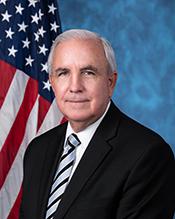0
COOL Online Act
1/13/2025, 9:34 PM
Summary of Bill HR 6299
The COOL Online Act would apply to all online retailers, including large e-commerce platforms like Amazon and smaller independent sellers. These retailers would be required to prominently display the country of origin for each product on their website, making it easier for consumers to make informed purchasing decisions.
Supporters of the bill argue that COOL labeling is important for consumers who want to know where their products are coming from and make choices based on factors like quality, safety, and ethical considerations. They believe that online retailers should be held to the same standards as brick-and-mortar stores, which are already required to provide COOL information. Opponents of the bill, however, argue that it could place an undue burden on online retailers, particularly smaller businesses that may not have the resources to comply with the new labeling requirements. They also raise concerns about the potential for increased costs for consumers if retailers pass on the costs of compliance. Overall, the COOL Online Act is a proposed piece of legislation that aims to increase transparency in online retail by requiring country of origin labeling for products sold on websites. Supporters believe it will empower consumers to make more informed choices, while opponents raise concerns about potential burdens on retailers and costs for consumers.
Congressional Summary of HR 6299
COOL Online Act
This bill requires online sellers of imported products to conspicuously disclose in online listings each product’s country of origin. The requirement generally applies to products that must be physically labeled with their country of origin under current law. Some agricultural products, food and drugs, and previously owned items are exempt, as are certain low-volume sellers. Listings for certain nonprescription drugs must include additional information currently required to be included on the drug’s packaging.
The bill specifies that online stores and marketplaces are not liable for violations of these provisions where they provided third-party sellers or suppliers with notice of the requirement and means to post the required disclosure. (Under the bill, an online marketplace is a consumer-directed online platform that enables third parties to sell products to consumers.) An online marketplace retains liability where the marketplace itself sells a product, rather than facilitating a third-party sale. Sellers are not liable where an online marketplace did not provide them with notice of the requirement or means to post the required disclosure.
The Federal Trade Commission must enter into an agreement with specified federal agencies with respect to implementation of these provisions. These provisions take effect one year after such an agreement is published.
Separately, the bill adds cooked king crab and tanner crab and cooked and canned salmon to the list of seafood products for which retailers must inform consumers of the product’s country of origin at the final point of sale.
Read the Full Bill
Current Status of Bill HR 6299
Bipartisan Support of Bill HR 6299
Total Number of Sponsors
3Democrat Sponsors
0Republican Sponsors
3Unaffiliated Sponsors
0Total Number of Cosponsors
1Democrat Cosponsors
1Republican Cosponsors
0Unaffiliated Cosponsors
0Policy Area and Potential Impact of Bill HR 6299
Primary Policy Focus
Science, Technology, CommunicationsAlternate Title(s) of Bill HR 6299
Comments

Conner Terrell
11 months ago
This bill is great! It makes it so websites have to tell you where products are made. This is important because it helps us support American businesses. I think this bill will help me make better choices when shopping online. Can't wait to see the positive impacts of this bill in the short term!


